Abstract
During the preparatory phase of the Malaria Eradication Pilot Project in Ghana, a weekly pyrimethamine regimen was instituted at two hyperendemic villages, primarily to assess the reliability of self-administration techniques under local conditions.
After initial supervised individual administrations, weekly distribution of family drug requirements was made to a responsible member of each household by volunteer community leaders.
Although parasite rates fell from 71% to 6.5% after four weeks, recurrence of Plasmodium falciparum parasitaemia was observed by the 37th week. Resistance in that species was confirmed, associated with successful sporogony in Anopheles gambiae, after supervised pyrimethamine treatment equivalent to twice the routine dosage.
Emergence of this high-grade drug resistance was attributable to irregular self-administration by the local population of the tablets collected for each household. It was therefore concluded that under the conditions obtaining, self-medication was not a reliable method for mass distribution of pyrimethamine.
Full text
PDF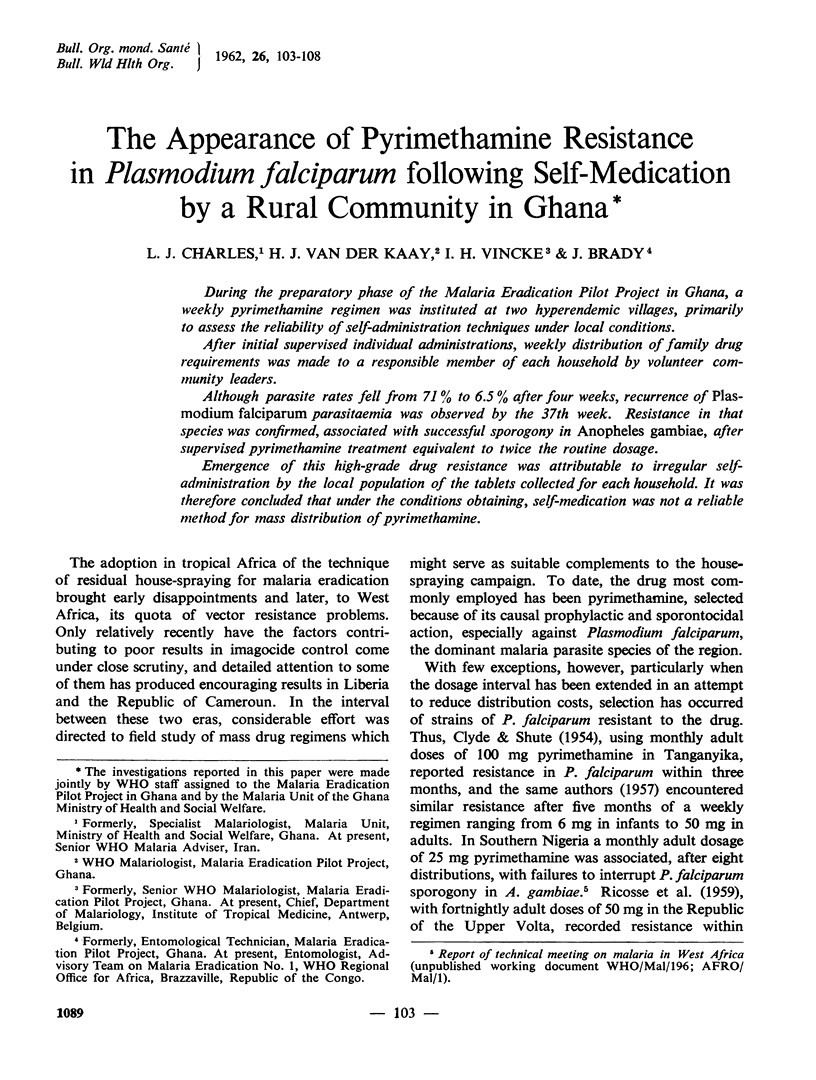
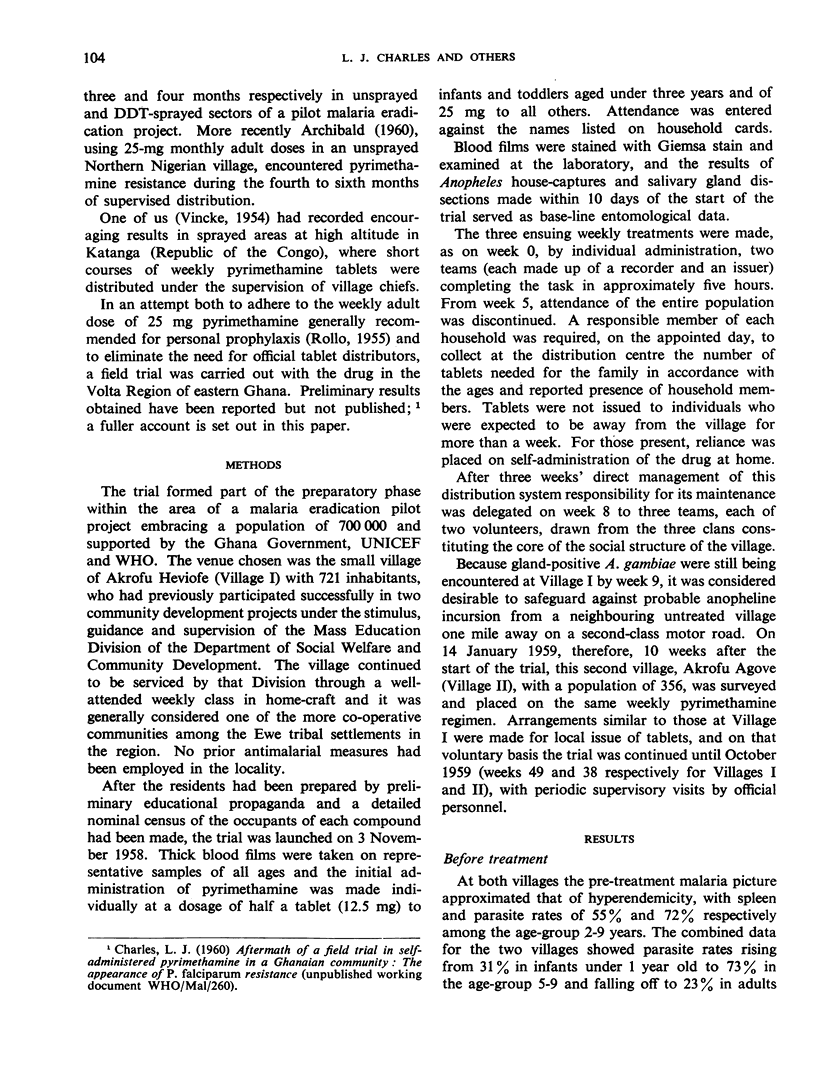
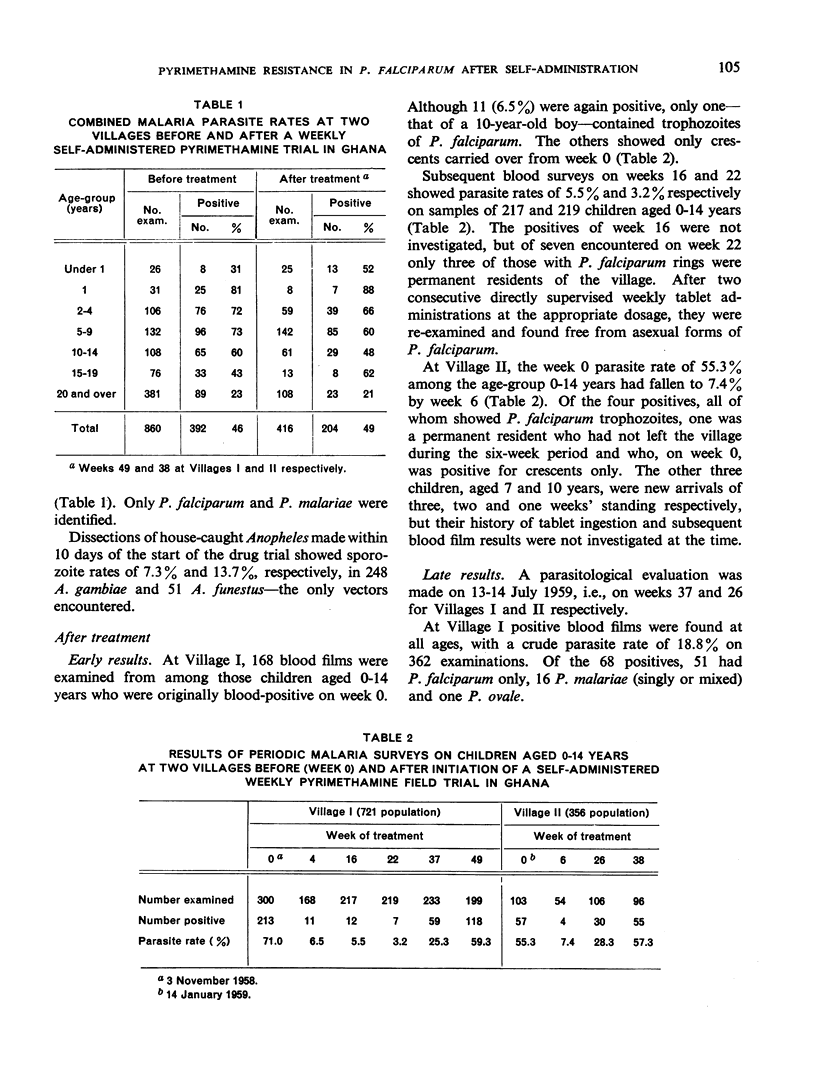
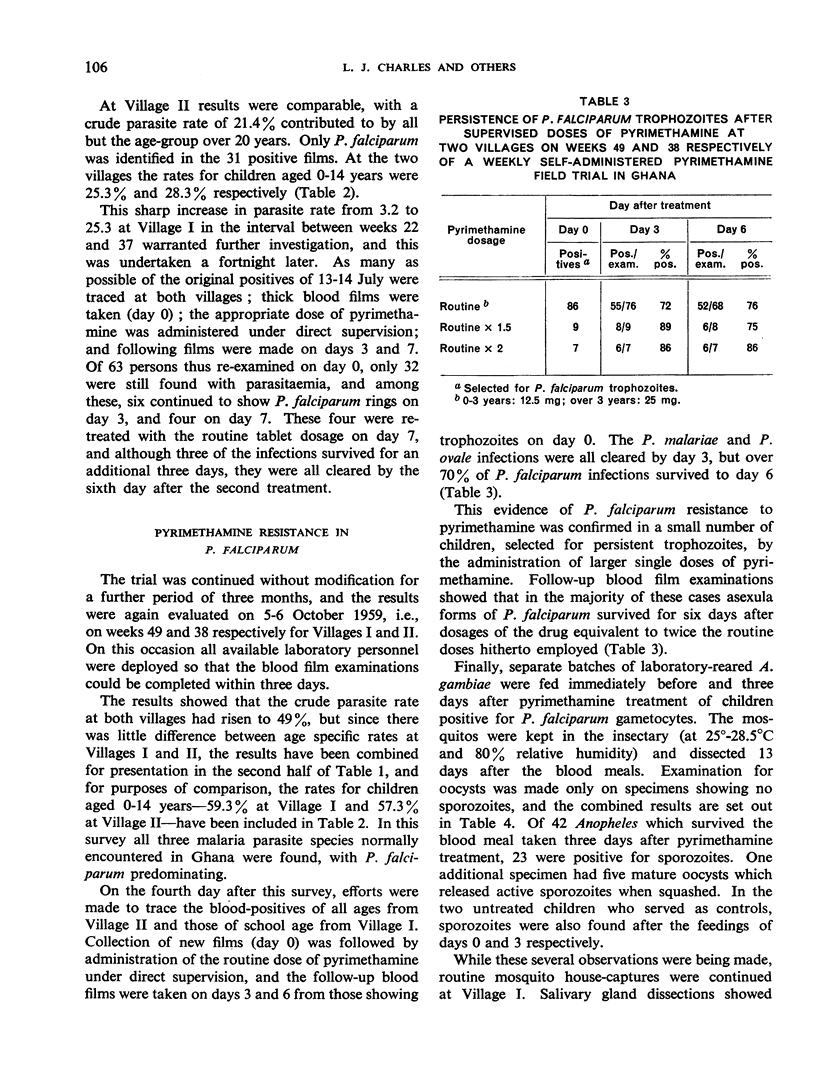
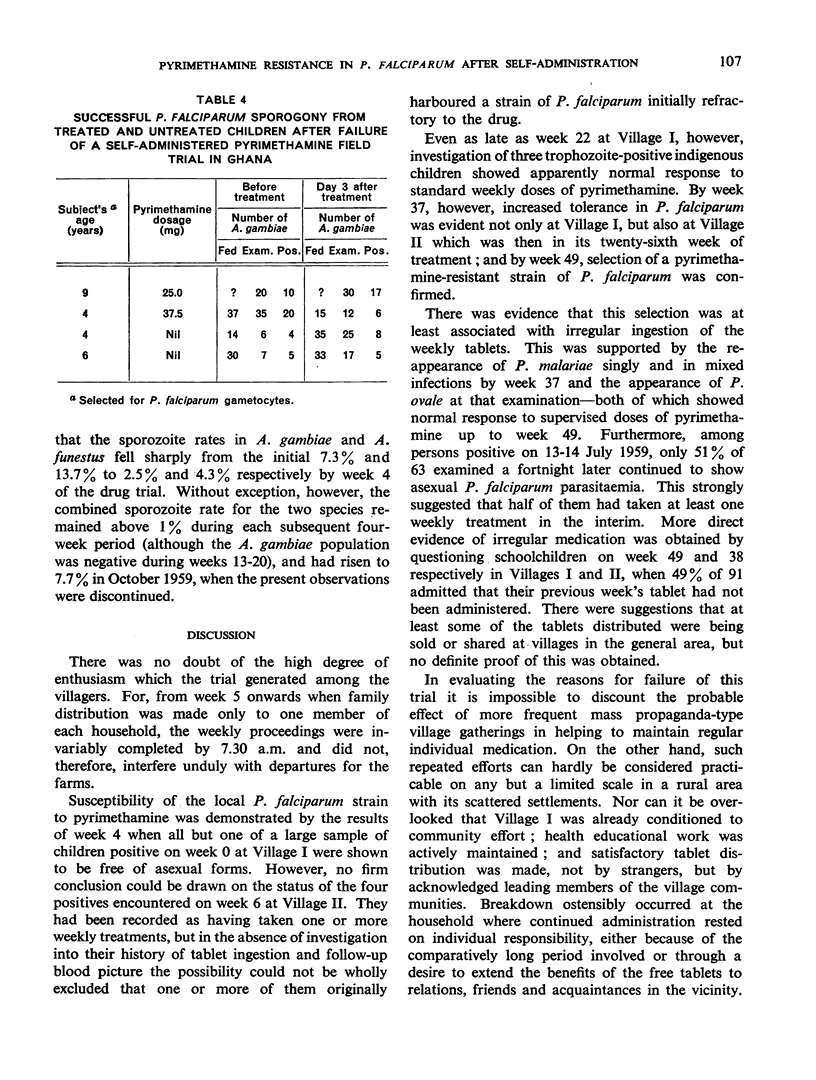
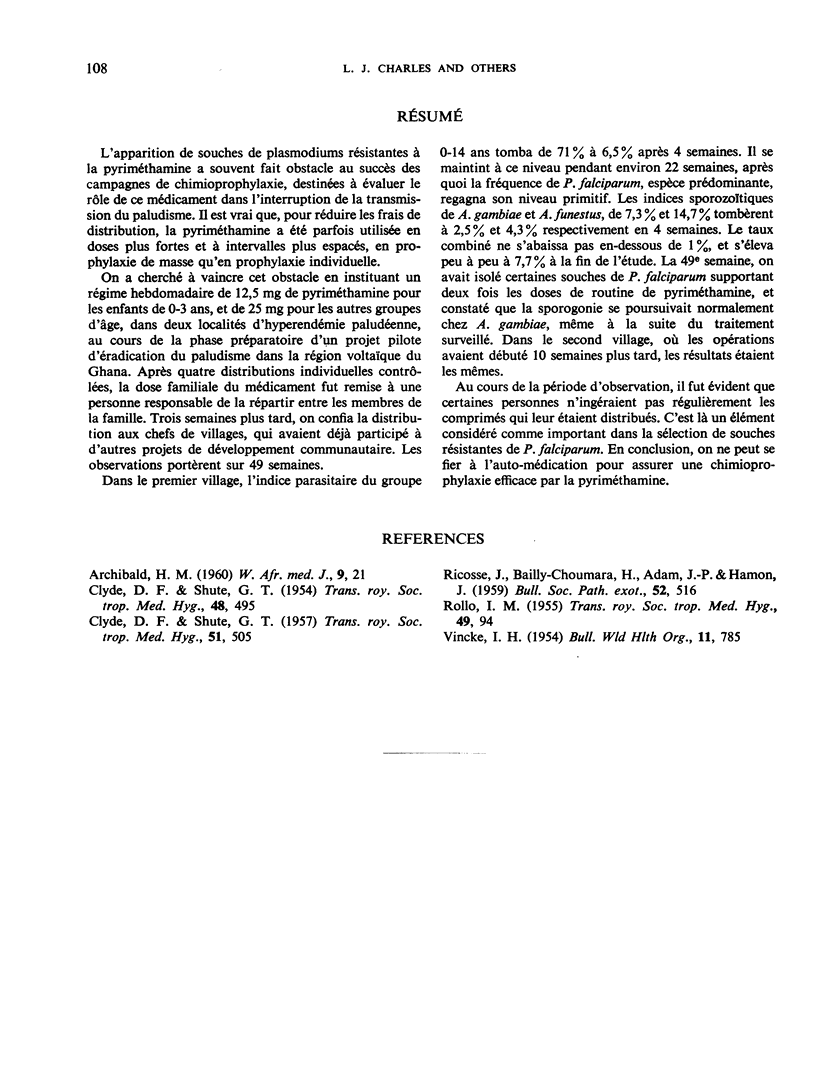
Selected References
These references are in PubMed. This may not be the complete list of references from this article.
- ARCHIBALD H. M. The appearance of P. falciparum resistant to pyrimethamine in a northern Nigerian village. West Afr Med J. 1960 Feb;9:21–25. [PubMed] [Google Scholar]
- CLYDE D. F., SHUTE G. T. Resistance of East African varieties of Plasmodium falciparum to pyrimethamine. Trans R Soc Trop Med Hyg. 1954 Nov;48(6):495–500. doi: 10.1016/0035-9203(54)90085-1. [DOI] [PubMed] [Google Scholar]
- CLYDE D. F., SHUTE G. T. Resistance of Plasmodium falciparum in Tanganyika to pyrimethamine administered at weekly intervals. Trans R Soc Trop Med Hyg. 1957 Nov;51(6):505–513. doi: 10.1016/0035-9203(57)90039-1. [DOI] [PubMed] [Google Scholar]
- VINCKE I. H. Prophylaxie medicamenteuse du paludisme en zone rurale. Bull World Health Organ. 1954;11(4-5):785–792. [PMC free article] [PubMed] [Google Scholar]


